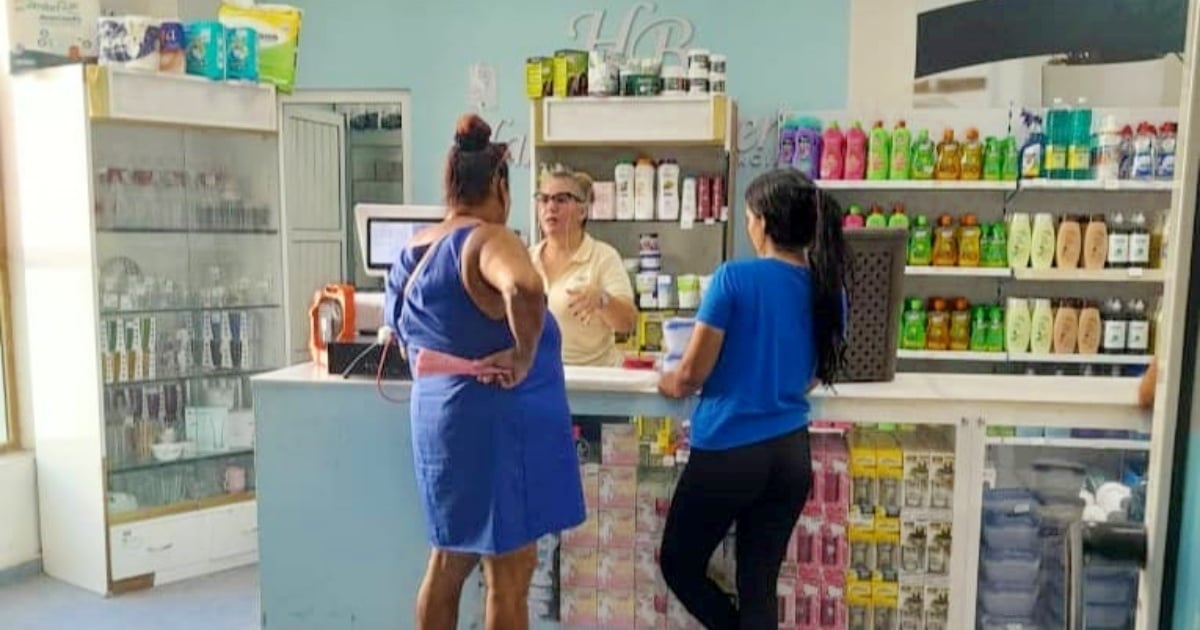
In some stores that accept freely convertible currency (MLC), the Cuban government has begun to allow the purchase of products with cash in foreign currency, according to the independent media outlet elTOQUE.
Workers from the Tiendas Caribe chain and the Corporación Cimex S.A. will ensure that some establishments already accept payments in dollars and euros, while others are preparing to start receiving cash in foreign currencies.
Although the measure is not yet applied across the entire network of stores, it is expected that more establishments will begin to accept foreign currency in the coming months.
The change is given to the customer in Cuban pesos using the official exchange rate of the day set by the Central Bank of Cuba.
Some stores, like Vitola 360 in Old Havana, are already promoting on social media that they accept cash payments and valid international cards in the country.
Furthermore, Cimex plans to increase the sales points for the Clásica card denominated in dollars, which costs 4 USD and is currently only available at the Casas de Cambio (CADECA) or through requests from abroad.
A worker mentioned to the aforementioned outlet that soon those who have dollars will be able to buy this card in stores, reload it, and use it to purchase products, although there is still no official date for its implementation.
The introduction of new cards in USD has generated uncertainty, as it reinforces the idea that the MLC is not backed by dollars.
The Classic card, launched in January 2024 alongside another prepaid card from the Bank of Credit and Commerce (BANDEC), was not well received among Cubans, which led to a reduction in the minimum top-up amount from 50 USD to 5 USD, while maintaining a fee of 4 USD.
In July, Prime Minister Manuel Marrero announced during a session of the National Assembly of People's Power (ANPP) that the use of cash in foreign currency would be permitted in sectors such as tourism, despite the fact that this contradicts the banking policy promoted by the government.
Marrero argued that this measure is necessary to attract foreign currency, as the country is losing revenue due to the lack of access to the dollars in circulation in the private sector and the informal currency market.
Soon after, the Cuban Tourism Office and the Canadian magazine Travel Week reported that from August 1 of this year, Canadian tourists could pay in cash with Canadian dollars, as well as with debit and credit cards from banks in their country throughout the island.
Informal currency market in calm
Could the gradual inclusion of cash currency in the MLC stores in Cuba be part of the reason for the slowdown of currency in the informal market?
The truth is that the dollar, euro, and the freely convertible currency (MLC), the reference currencies in Cuba, started this Tuesday the tenth month of the year maintaining what has been their trend for almost two months: price stability, only interrupted by slight adjustments.
At dawn on October 1, the US dollar was valued at 320 CUP, the euro at 335, and the MLC at 270.
Despite the stability in the informal currency market since early August, the prices of basic products in Cuba continue to be high for the population and are indicators of the economic crisis the country is experiencing, where inflation and the scarcity of foreign currency impact the purchasing power of citizens.
The price stability in recent weeks contrasts with the significant changes in the first seven months of 2024, which were marked by abrupt streaks of both price increases and decreases.
What do you think?
COMMENTFiled under: